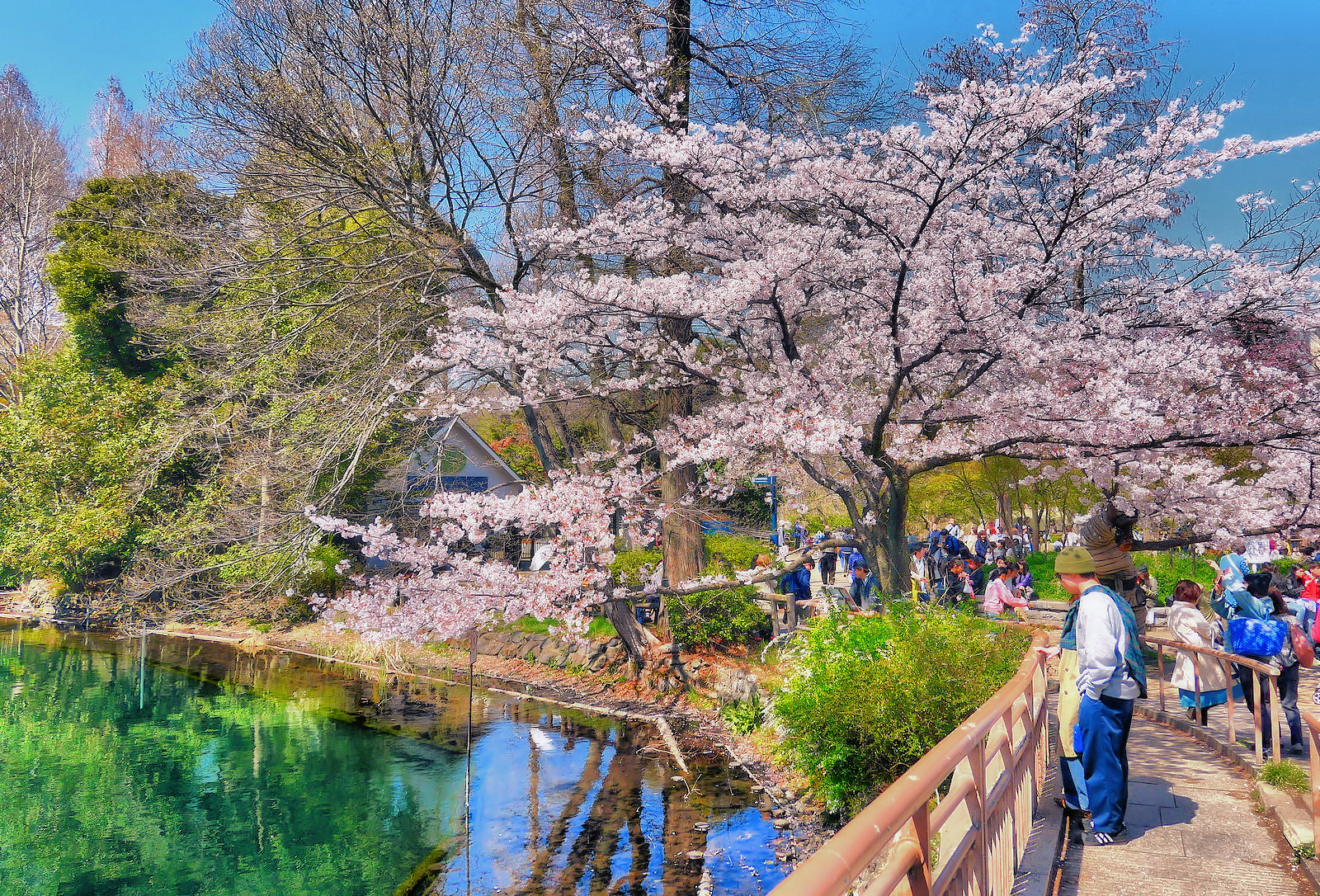
I am often asked if there is anything like Wal-Mart or Target in Japan.
While Costco and Wal-Mart do exist in Japan, for a Japanese retail company where people can buy clothes, food, consumer and household goods, plants and such. There are a few, but one of the more fascinating stores is Muji (Mujirushi Ryohin).
The company began in the 1980’s focusing on stationary and clothing and then incorporating food, kitchen appliances and more. In fact, they were a generic supermarket brand for Seiyu at the time.
Why Mujis so fascinating that unlike Wal-Mart or Target or other stores which go through buyers to feature their products and brands do matter, at Muji, that is not the case. In fact, the company promotes minimalism, recycling and healthy living without waste from packaging that it has a no-logo, no-brand policy.
In fact, the company’s name “Mujirushi Ryohin” means “No Brand Quality Goods”.
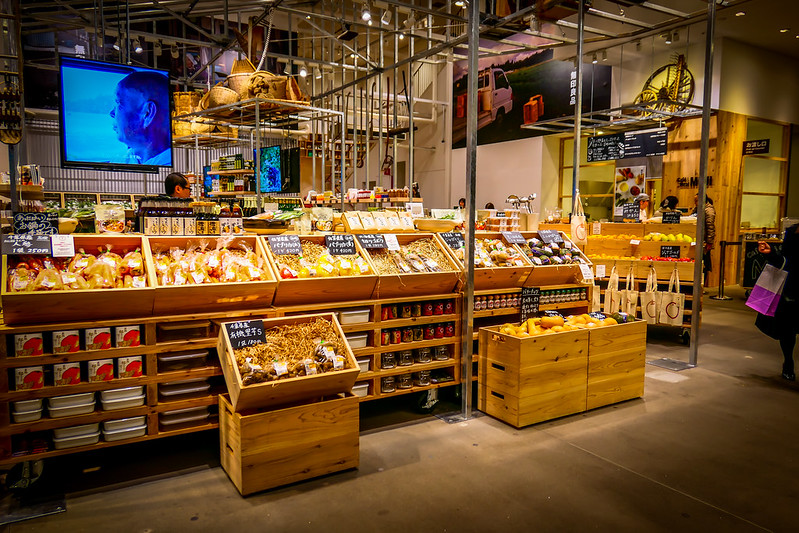
For me, I wanted to check out the home and garden section of Muji, as most of you know through my posts about plants and gardening, it’s something I like to do in my spare time.
Great source of meditation and getting things all setup is somewhat of a workout each time.
But having read numerous Japanese magazines on “Going green!” and seeing how Tokyoites incorporate plants into their home, visiting Muji was a good way to see what kind of plants were in stock. But it did make me wonder how some people were able to transport tubs, if they didn’t own a car?
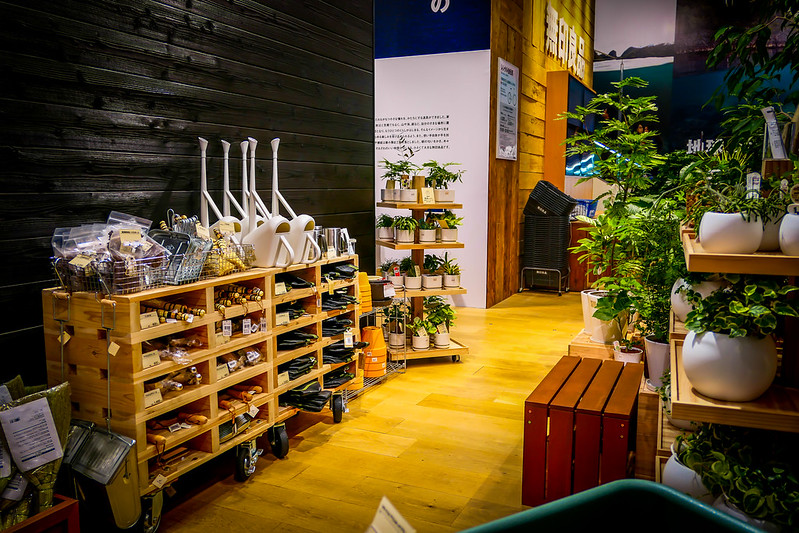
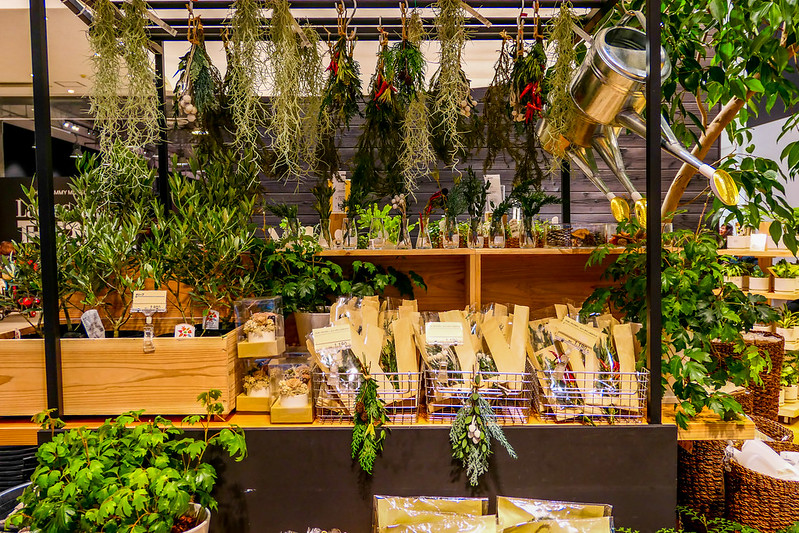
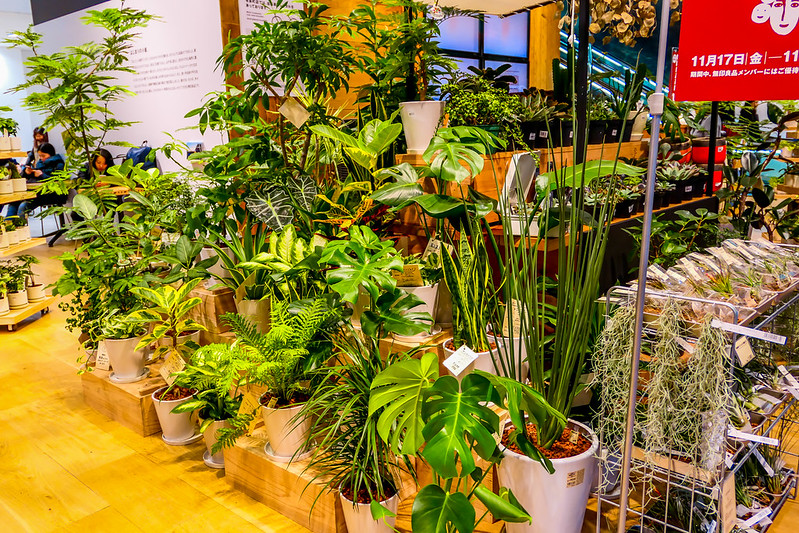

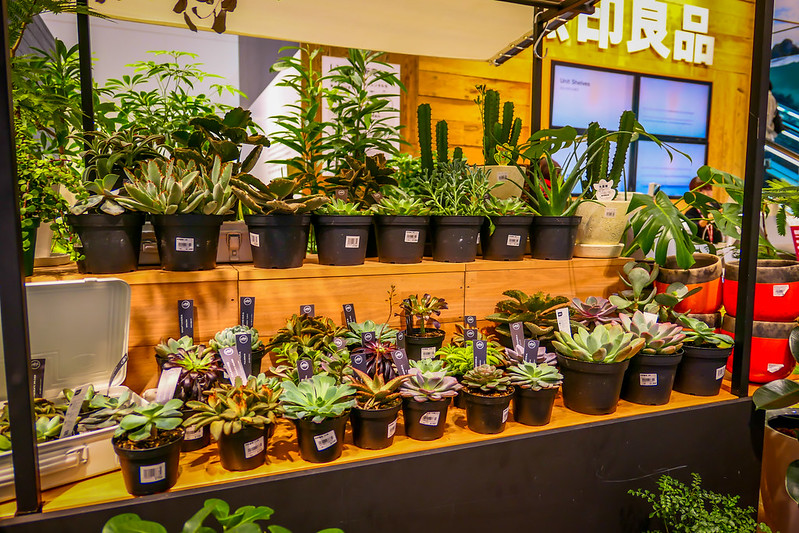
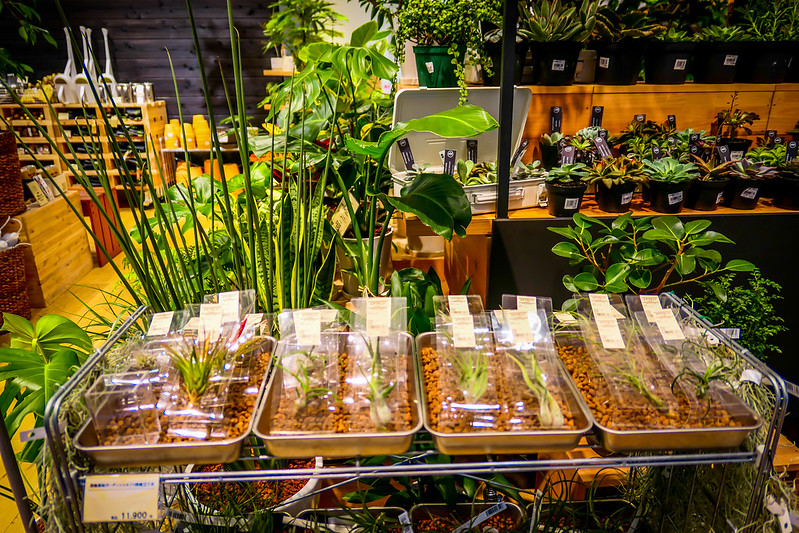
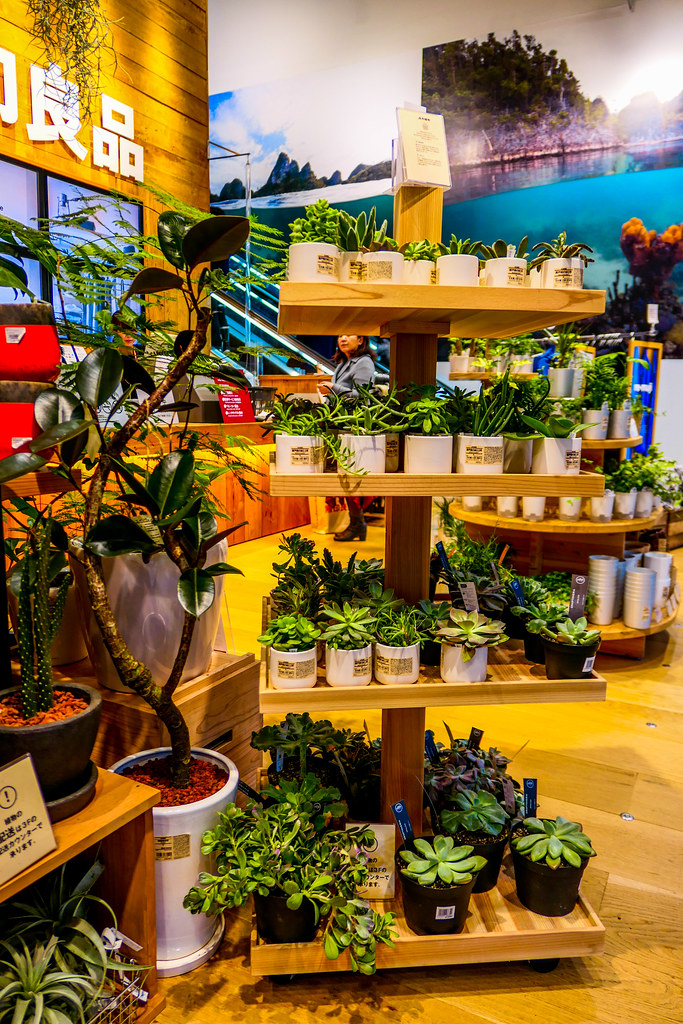
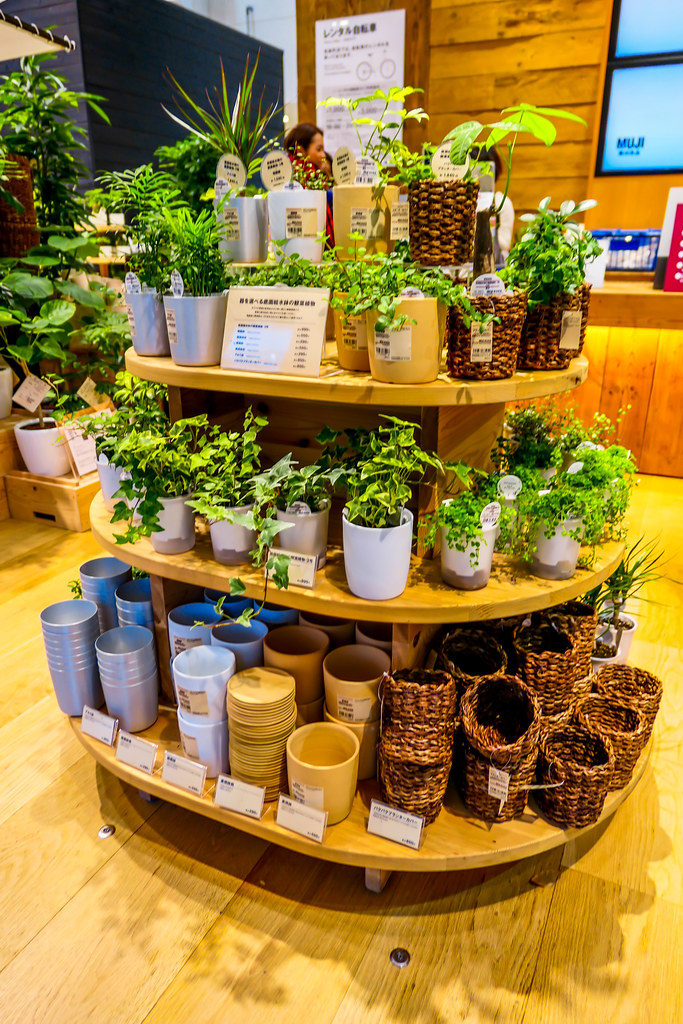
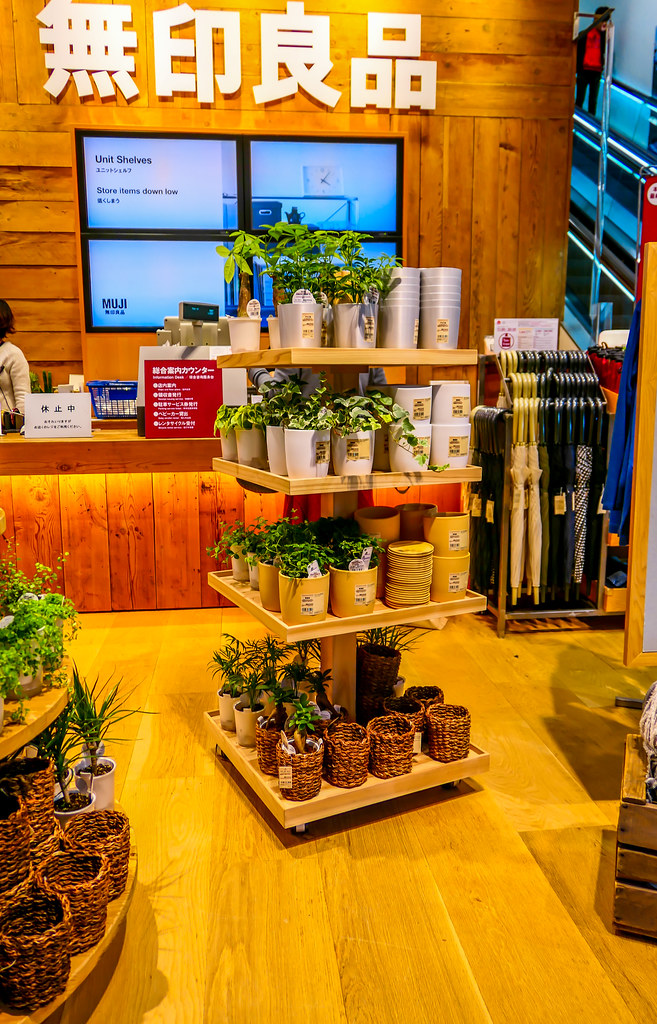
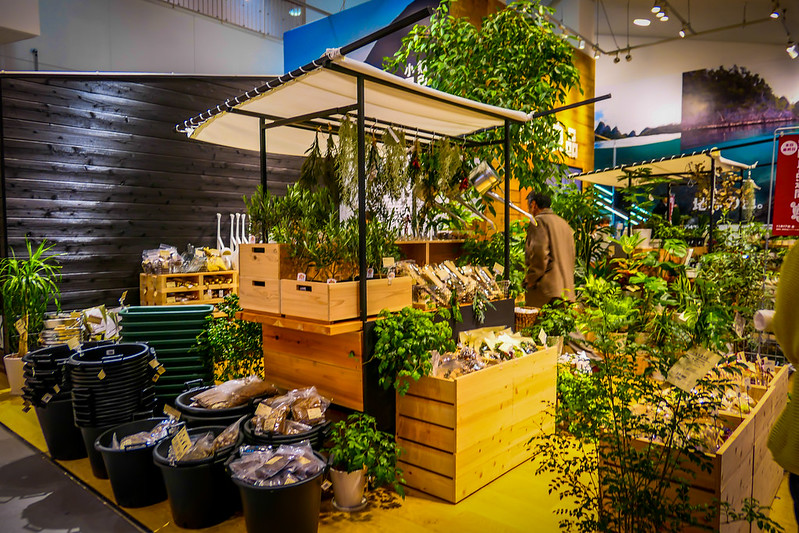
Muji no doubt has a lot of small plants and various pots for people to plan to have a green home. While not as numerous when compared to what we see at a Lowe’s or Home Depot, which should be expected. Muji’s plant offerings are great for those who want to green up their home.
While Muji has brought its products outside of Japan and has entered European and U.S. markets years ago, it’s interesting when you see Muji items sold for way more than what they sell in Japan.
Make no mistake…Muji is no-brand, generic goods. An oxymoron to Japan’s consumerist nature towards brand names. With more people getting into Japanese pop culture, inexpensive and affordable has become huge and stores such as Uniqlo, Daiso and Muji will no doubt attract its supporters outside of Japan.
And some may have a preconceived notion that what they have seen at a Muji store in the US may be more akin to Big Lots,but when you go to Japan and visit Muji house Yurakucho home center, looking at the interior and what is sold, I was surprised and impressed.
